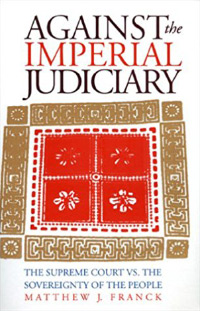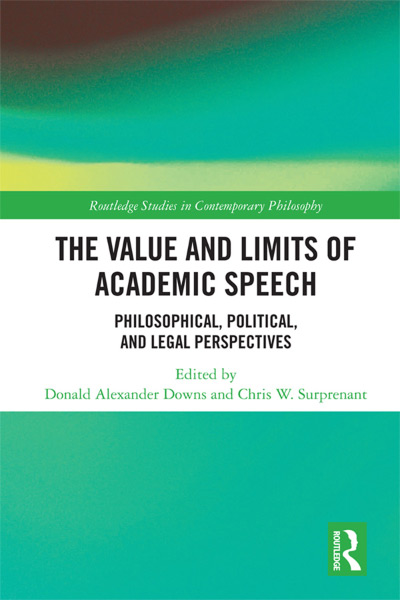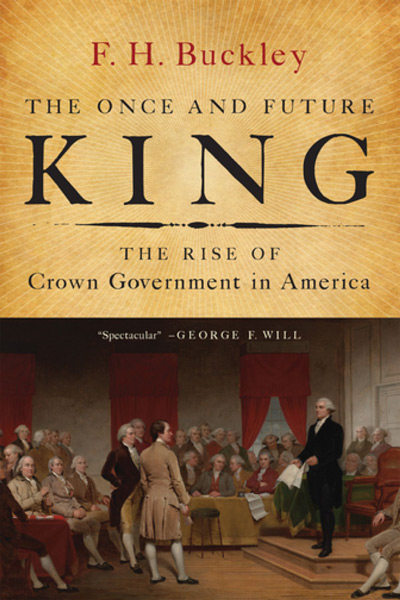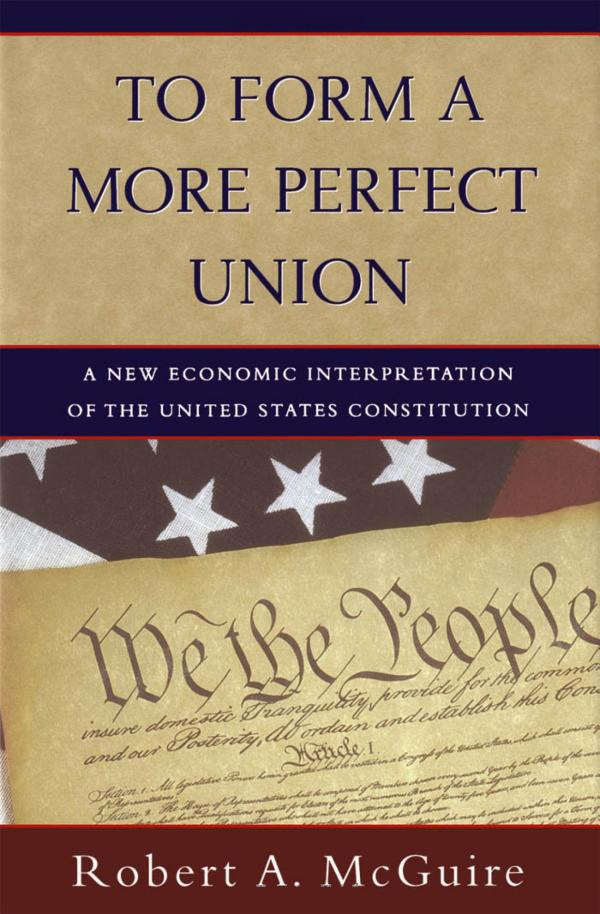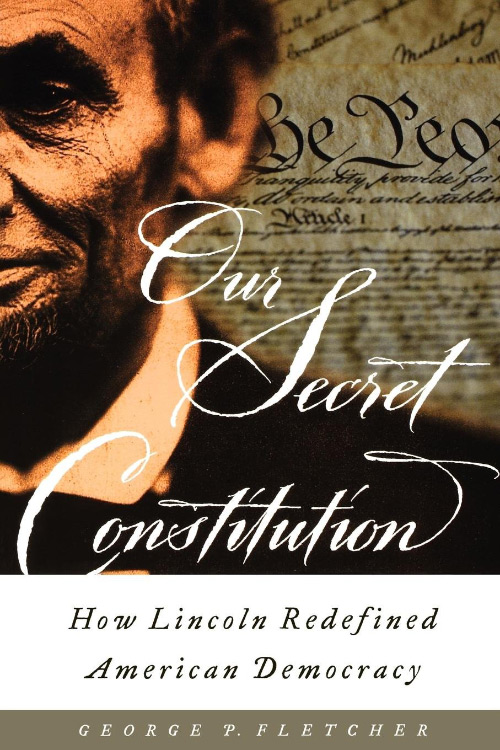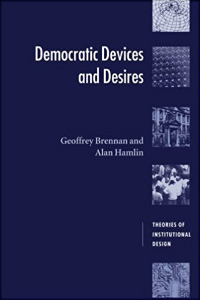The role of the Supreme Court under the United States Constitution has been a source of controversy since the framing of that document. The reason is that no provision of the Constitution accords the Supreme Court a review power over the other branches of government. Under the review power, the Court has authority to invalidate laws or regulations that it interprets as violating the Constitution. The Court has exercised this power on the basis of its interpretation of the Constitution beginning with Marbury v. Madison, decided in 1803.
In his scholarly book Against the Imperial Judiciary, Matthew J. Franck takes the position that the judiciary’s interpretative authority under the Constitution is subordinate to that of the Congress. He rejects any judicial veto power over Congress. If the people believe that Congress has passed measures that violate the Constitution, they can go to the polls to change the Congress or they can amend the document to reverse the provision in question. The only other remedy, according to him, is the one contemplated in the Declaration of Independence: revolution. This is appropriate whenever a “long train of abuses and usurpations” shows the government to be destructive of the purposes of the social compact.
Franck supports his thesis by explaining that both John Locke and William Blackstone, two commentators highly regarded in the late eighteenth century, believed in legislative supremacy and accepted public voting or revolution as the only ways to remove laws that are not legitimate. Courts were not to decide what rights people possessed but to serve as arenas for resolving conflicts between individuals over these rights. The only other function for the judges was to serve an epideictic role with the “aim of keeping alive and vibrant the people’s appetite for and ethic of generous republican liberty.”
In my view, Franck’s interpretation of congressional power is in error. The proposed Constitution of 1787 would not have been ratified if the public believed that the Congress’s powers were supreme. In framing the United States Constitution, the Constitutional Convention of 1787 rejected a fundamental principle of English government, the sovereignty of Parliament. In place of legislative supremacy the framers established a divided and limited government of three branches, each with power to monitor the others in fulfillment of constitutional terms and purposes.
Fearing legislative supremacy as hostile to freedom, the delegates to the Constitutional Convention turned down an effort to give Congress immense powers. The Committee of Detail recommended that Congress be given the sweeping power to provide “for the well managing and securing the common property and general interests and welfare of the United States,” but this proposal did not appear in any drafts of the Constitution (Irving Brant, The Fourth President: The Life and Times of James Madison. Indianapolis: Bobbs-Merrill, 1970, p. 186).
This occurrence was not unusual. The convention refused to empower the national government to act in many areas: to set up temporary governments in new states; to grant charters of incorporation; to create seminaries for the promotion of literature and the arts; to establish public institutions, rewards, and immunities for the promotion of agriculture, commerce, trades, and manufactures; to regulate stages on the post road; to establish a university; to encourage, by proper premiums and provisions, the advancement of useful knowledge and discoveries; to provide for opening and establishing canals; to emit bills of credit (which then meant printing unbacked paper for circulation as currency); and to make sumptuary laws. Each of these proposals was introduced and was then either voted down or not considered further outside of committee. The Constitution lists the powers delegated to Congress. According to Alexander Hamilton, “there is no position which depends on clearer principles than that every act of a delegated authority, contrary to a tenor of the commission under which it is exercised, is void.”
The framers’ debate on whether Congress should have the power to print paper money not backed by precious metals is instructive on their meaning of enumerated authority. Because the powers to borrow money and to emit bills of credit had been granted to Congress under the Articles of Confederation, they were extended to the new government in an early draft of the Constitution prepared by the Committee of Detail. Gouverneur Morris of Pennsylvania opposed giving Congress the power to emit bills of credit, and he moved to strike the phrase authorizing it. Apparently, the delegates believed the absence of language permitting emission sufficed to deny Congress this authority. Although most delegates opposed granting this power, and the states voted nine to two in support of Morris’s motion, no delegate sought to insert a specific ban.
The leading theoretician among the framers on the subject of separation of powers was James Madison. In replying to public concerns about excessive government powers in the proposed Constitution, Madison devoted five Federalist papers (numbers 47, 48, 49, 50, and 51) to discussing and explaining the Constitution’s separation of powers.
The separation of powers consisted of, first, the division of functions, and second, checks and balances held by each branch with respect to the others. Responding to attacks on the proposed constitution, Madison asserted: “Were the federal constitution therefore really chargeable with this accumulation of powers or with a mixture of powers having a dangerous tendency to such an accumulation, no further arguments would be necessary to inspire universal reprobation of the system” (Federalist paper no. 47).
An opponent of majority rule, Madison extolled the separation principle: “No political truth is certainly of greater intrinsic value or as stamped with the authenticity of more enlightened patrons of liberty.” Moreover, “the accumulation of all powers legislative, executive and judiciary in the same lands, whether of one, a few or many, and whether hereditary, self appointed, or elective, may justly be pronounced the very definition of tyranny” (Federalist paper no. 47). Implementation of the separation principle, Madison explained, would be accomplished not only by the legal text but also by “so contriving the interior structure of government as that its several constituent parts may, by their mutual relations, be the means of keeping each other in their proper places” (Federalist paper no. 51).
But the great security against a gradual concentration of the several powers in the same department consists in giving to those who administer each department the necessary constitutional means and personal motives to resist encroachments of the others. The provision for defense must in this, as in all other cases, be made commensurate to the danger of attack. Ambition must be made to counteract ambition.... In framing a government which is to be administered by men over men, the great difficulty lies in this: you must first enable the government to control the governed; and in the next place oblige it to control itself. A dependence on the people is no doubt, the primary control on the government; but experience has taught mankind the necessity of auxiliary precautions. (Federalist paper no. 51)
Madison was particularly concerned about legislative excesses. “In republican government the legislative authority, necessarily, predominates” (Federalist paper no. 51). The legislature “was the real source of danger to the American Constitution [necessitating] giving every defensive authority to the other departments that was consistent with republican principles” (M. Farrand, The Records of the Federal Convention of 1787, rev. ed., vol. 2. New Haven: Yale University Press, 1937, p. 74). If the Congress violates the Constitution, Madison stated, “the success of the usurpation will depend on the executive and judiciary departments” and in time the electorate (Federalist paper no. 44).
Madison rejected majority rule as a matter of principle. “In fact, it is only reestablishing, under another name and more specious form, force as a matter of right” (The Forging of American Federalism: Selected Writings of James Madison, edited by Saul K. Padover. New York: Harper & Row, 1965, p. 45). Granting the legislature unlimited power, he wrote, violated a fundamental principle of a free society:
No man is allowed to be a judge in his own cause, because his interest would certainly bias his judgment, and, not improbably, corrupt his integrity. With equal, nay with greater reason, a body of men are unfit to be both judges and parties at the same time; yet what are many of the most important acts of legislation but so many judicial determinations, not indeed concerning the rights of single persons, but concerning the rights of large bodies of citizens? And what are the different classes of legislators but advocates and parties to the causes which they determine? (Federalist paper no. 10.)
Others also feared majoritarian power. James Wilson, an influential framer, observed that after the destruction of royal supremacy in England, “a more pure and unmixed tyranny sprang up in the parliament than had been exercised by the monarch” (quoted in Philip B. Kurland and Ralph Lerner, The Founders’ Constitution, vol. 1. Chicago: University of Chicago Press, 1987, p. 323). Apprehensive about lawmakers, Hamilton condemned the state legislatures for failing to safeguard commercial rights (The Papers of Alexander Hamilton, edited by Harold C. Syrett, vol. 25. New York: Columbia University Press, 1977, pp. 478–79). Gouverneur Morris found in every state legislative department “excesses [against] personal liberty private property [and] personal safety” (Farrand, vol. 1, p. 512), and Edmund Randolph presented the Virginia Plan to the Convention to overcome the “turbulence and follies of democracy” (Farrand, vol. 1, p. 51).
Hamilton also described the dangers an unlimited legislature posed for a society:
Are not popular assemblies subject to the impulses of rage, resentment, jealousy, avarice, and of other irregular and violent propensities? Is it not well known that their determinations are often governed by a few individuals in whom they place confidence and are, of course, liable to be tinctured by the passions and views of those individuals? (Federalist paper no. 6)
Only the judiciary, Hamilton reasoned, was in a position to secure the Constitution:
The complete independence of the courts of justice is peculiarly essential in a limited constitution. By a limited constitution, I understand one which contains certain specified exceptions to the legislative authority; such, for instance, as that it shall pass no bills of attainder, no ex post facto laws, and the like. Limitations of this kind can be preserved in practice no other way than through the medium of the courts of justice; whose duty it must be to declare all acts contrary to the manifest tenor of the constitution void. Without this, all the reservations of particular rights or privileges would amount to nothing. (Federalist paper no. 78)
Hamilton declared that the judiciary would never endanger the liberty of the people “so long as the judiciary remains truly distinct from both the legislature and the executive. For I agree [with Montesquieu, the celebrated French writer] that ‘there is no liberty if the power of judging be not separated from the legislative and executive powers.’” Hamilton exhibited great perception in these observations. The history of the Supreme Court has shown that its major failings occur when it seeks to exercise legislative or executive powers (see, generally, Bernard H. Siegan, The Supreme Court’s Constitution: In Inquiry Into Judicial Review and Its Impact on Society. New Brunswick and Oxford: Transaction, 1987).
So what should we conclude about Franck’s position on legislative supremacy? To be sure, Locke and Blackstone were highly regarded in the revolutionary and constitutional periods, and their writings greatly influenced learned people of those times. However, it is evident that the framers rejected the ideas of these two commentators about legislative supremacy. The Constitution created a new form of government of such modest power that its framers did not believe a Bill of Rights was required to protect the people. In the words of Alexander Hamilton, “For why declare that things shall not be done when there is no power to do?”


